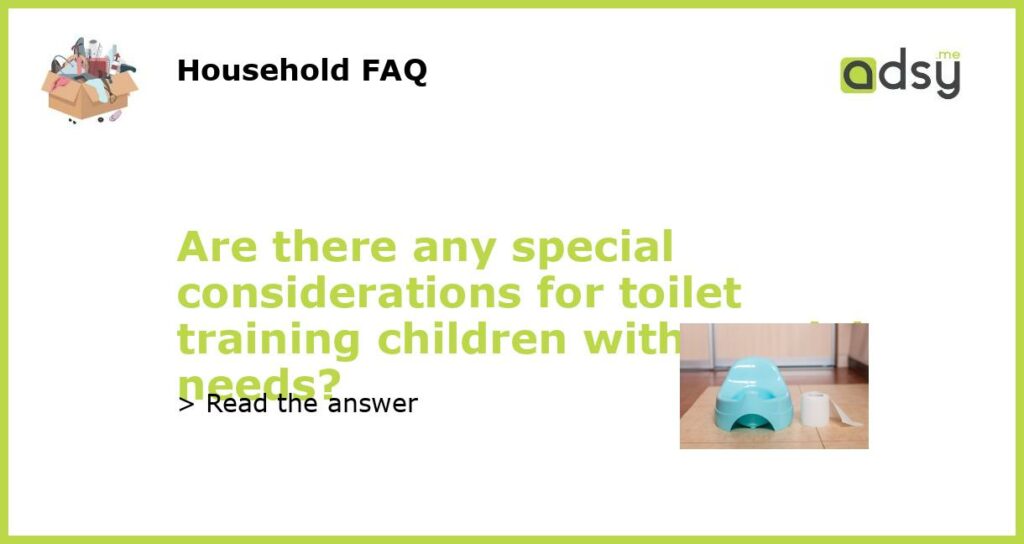Toilet training is a significant milestone in a child’s development, and it can be a challenging process for any parent. However, when it comes to toilet training children with special needs, there may be additional considerations and strategies that need to be employed. Each child is unique, and their special needs can vary, so it is important to approach toilet training with sensitivity and adaptability. In this article, we will explore some special considerations for toilet training children with special needs.
Understanding the Child’s Abilities and Readiness
Before starting toilet training, it is essential to understand the child’s abilities, limitations, and readiness. Children with special needs may have physical, cognitive, or sensory challenges that can affect their ability to control their bladder and bowels. It is crucial to work closely with the child’s healthcare provider or therapist to assess their readiness for toilet training. They can provide valuable insights and recommendations based on the child’s specific needs and abilities.
Creating a Supportive Environment
One of the key considerations for toilet training children with special needs is creating a supportive environment. This can include adapting the physical environment to meet the child’s needs. For example, using visual supports such as picture schedules or social stories can help children with autism spectrum disorders understand the steps involved in toileting. Additionally, making the bathroom and toilet area accessible by adding grab bars, raised toilet seats, or step stools can assist children with physical disabilities.
Another aspect of creating a supportive environment is establishing a consistent routine. Children with special needs often thrive on predictability and structure. It can be helpful to have a structured toileting schedule, incorporating regular bathroom visits at specific times throughout the day. This consistency can help the child feel secure and develop a sense of routine around toilet training.
Using Individualized Strategies
When it comes to toilet training children with special needs, it is important to use individualized strategies that meet their unique needs. This can involve specific techniques or adaptations based on their abilities and challenges. For example, children with fine motor difficulties might benefit from using adaptive equipment such as a button-hook or zipper-pull to assist with getting dressed or undressed for toileting.
In some cases, children with cognitive or sensory challenges may have difficulty recognizing the physical cues that signal the need to toilet. These children may benefit from the use of visual cues, such as a picture of a toilet, to help them understand the connection between the sensation and the action. Additionally, providing sensory support, such as using a specific type of toilet paper or providing a sensory break before toileting, can help children with sensory processing difficulties feel more comfortable during the process.
Seeking Professional Support
Toilet training children with special needs can be a complex process, and it is important to seek professional support when needed. In addition to collaborating with healthcare providers and therapists, there are specialized professionals, such as pediatric occupational therapists or behavioral analysts, who can provide guidance and expertise in toilet training children with special needs.
These professionals can assess the child’s specific challenges and develop individualized strategies to support the toilet training process. They can also work closely with parents to provide ongoing guidance, troubleshooting, and support as the child progresses through their toilet training journey.
Toilet training children with special needs requires a sensitive and adaptable approach. Understanding the child’s abilities and readiness, creating a supportive environment, using individualized strategies, and seeking professional support when needed are all important considerations in helping these children achieve success in toilet training. With patience, consistency, and the right support, children with special needs can develop the necessary skills and independence for successful toileting.






